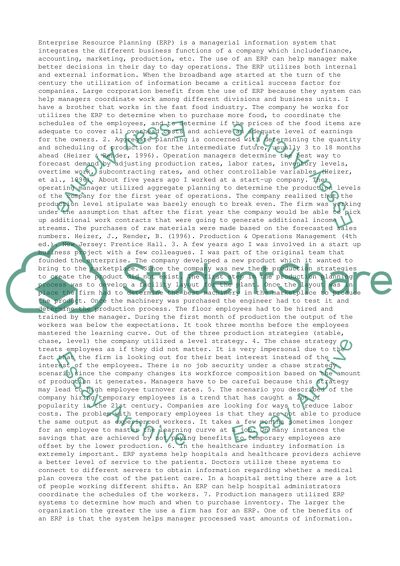Cite this document
(“Enterprise resource planning Essay Example | Topics and Well Written Essays - 1000 words”, n.d.)
Retrieved from https://studentshare.org/management/1408662-enterprise-resource-planning
Retrieved from https://studentshare.org/management/1408662-enterprise-resource-planning
(Enterprise Resource Planning Essay Example | Topics and Well Written Essays - 1000 Words)
https://studentshare.org/management/1408662-enterprise-resource-planning.
https://studentshare.org/management/1408662-enterprise-resource-planning.
“Enterprise Resource Planning Essay Example | Topics and Well Written Essays - 1000 Words”, n.d. https://studentshare.org/management/1408662-enterprise-resource-planning.


